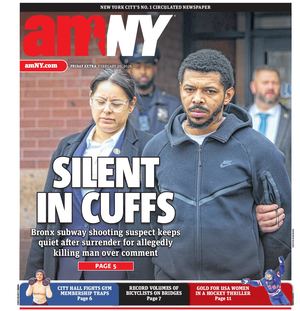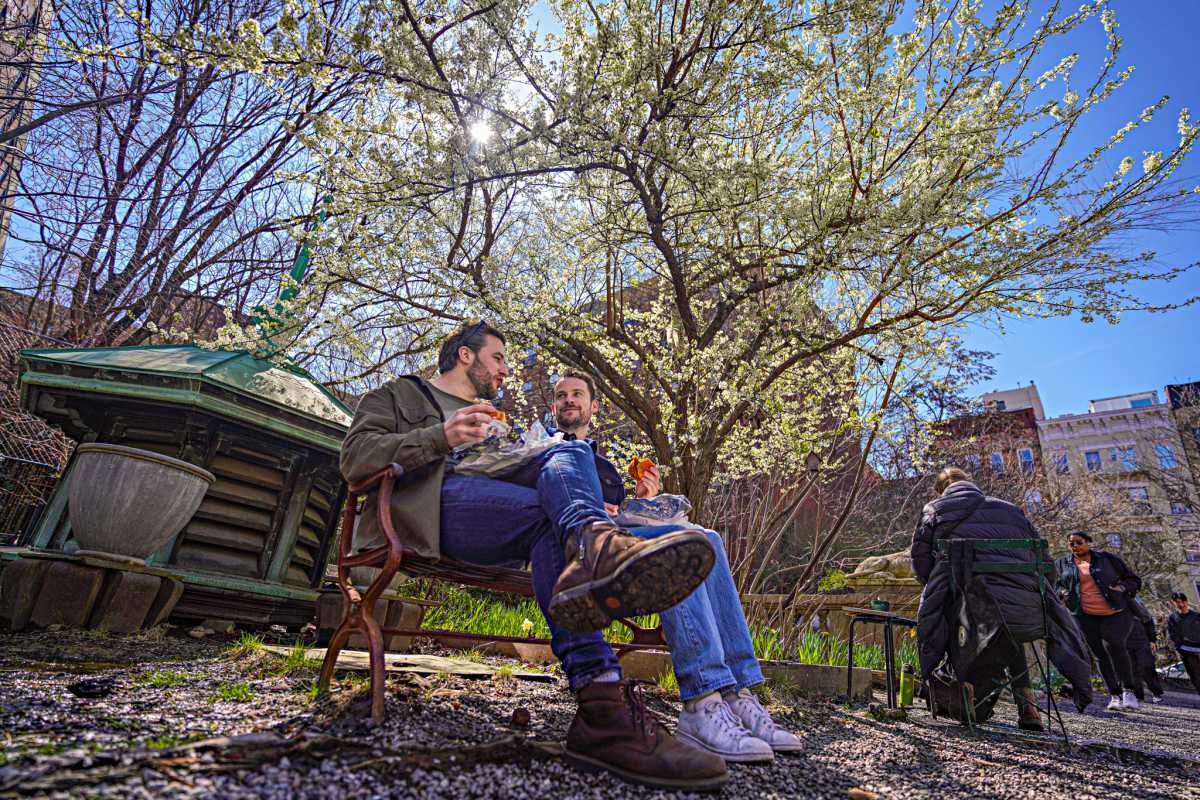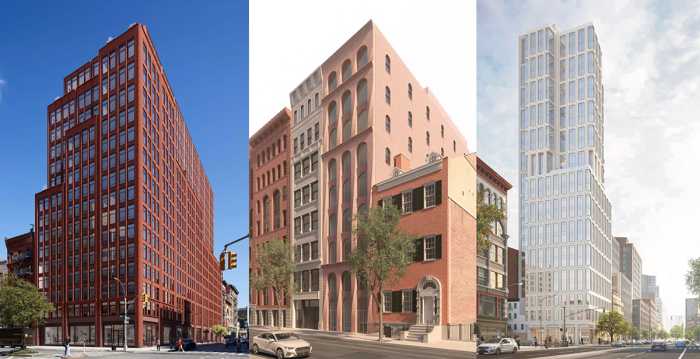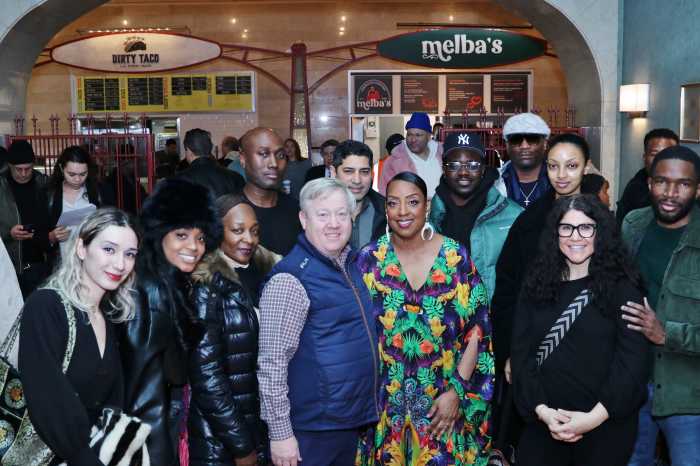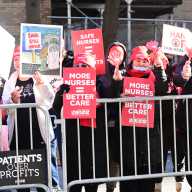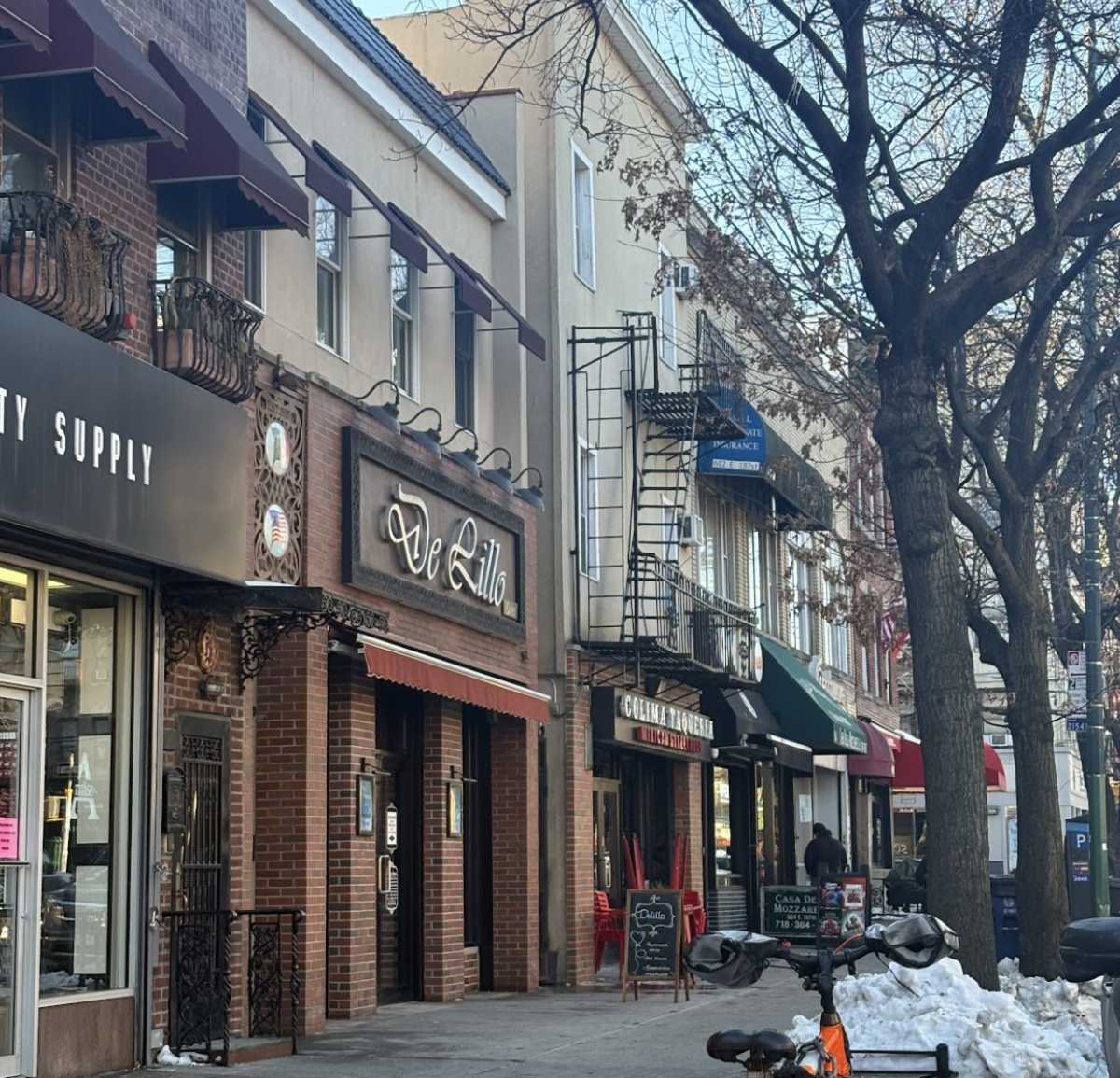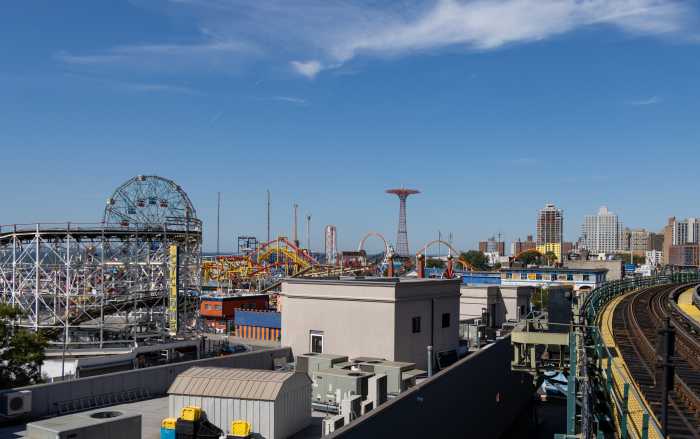After more than a decade of community-led resistance, Elizabeth Street Garden has been spared from demolition under a new agreement that expands affordable housing development elsewhere in the Lower Manhattan district.
Mayor Eric Adams announced on Monday a deal with Council Member Christopher Marte that preserves the one-acre urban oasis nestled between Manhattan’s SoHo and Little Italy neighborhoods while unlocking more than 620 units of affordable housing across three separate sites nearby.
“This incredible win-win for our community shows exactly why we should never give up,” said Marte. “Since the beginning of this fight almost a decade ago, we’ve been saying that we can save community gardens and build new affordable housing. Our rapidly gentrifying neighborhoods have been desperate for homes that working people can actually afford — and now we will have hundreds of new neighbors, and old neighbors with new homes, right here, all while saving a beloved community garden that is a home-away-from-home for Lower Manhattan families.”
The deal marks a significant departure from the city’s prior plan, known as the Haven Green project. This plan would have razed the Elizabeth Street Garden to construct 123 units of affordable senior housing, including 30% set aside for formerly homeless seniors.
Under the new plan, that number of senior units will still be built but on a rezoned site at 156-166 Bowery, just two blocks away. Two additional sites, including 200 affordable units on city-owned land at 22 Suffolk St. and a development at 100 Gold St., will bring the total new affordable housing count to over 620 units.
The 100 Gold St. development, included in Monday’s deal, was first announced in March but initially lacked support from Council Member Marte due to original plans to sell public land to a private developer without provisions for affordable housing. The project is now expected to include more than 1,000 mixed-income units, with at least 300 designated as affordable.
“The best way to tackle our city’s housing crisis is to build as much affordable housing as we can. The agreement announced today will help us meet that mission by creating more than five times the affordable housing originally planned while preserving a beloved local public space and expanding access to it,” said Mayor Adams. “This is what smart, responsible leadership looks like: bringing people together to reach common sense solutions that create more housing and protect green space.”
Under the agreement, Elizabeth Street Garden will remain a publicly accessible community space from 8 a.m. to 8 p.m. daily. The city has also committed to exploring the possibility of transferring the garden’s stewardship to the Parks Department to ensure its long-term preservation.
Monday’s news was met with relief and joy from garden advocates, many of whom had fought for over a decade, in the courts and the garden, against what they saw as a false choice between green space and housing.
Perhaps no one was more elated than Joseph Reiver, the garden’s executive director, who had been the greenspace’s key voice in its battle for salvation.
“I’ve spent the better part of my adult life knowing the Garden through times of uncertainty. In truth, after all these years, I don’t quite know what it’s like to be here without the weight of a looming threat. But here I am, writing this under the Gazebo on the evening of the Summer Solstice, knowing that Elizabeth Street Garden is saved,” said Reiver.
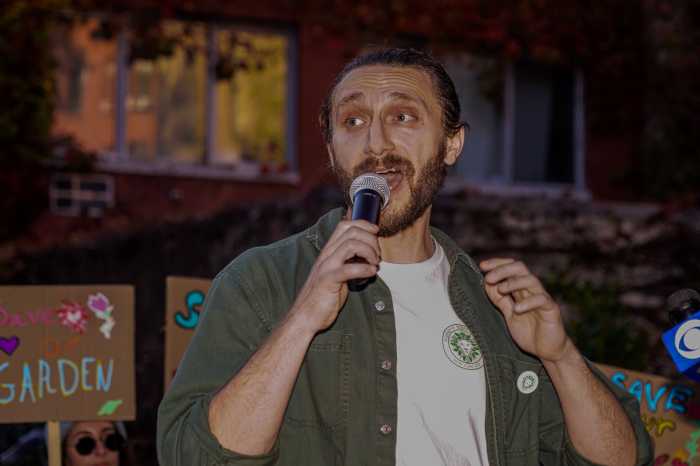
“In our efforts to preserve Elizabeth Street Garden, we have always pursued a solution that provides affordable housing without any loss to the community. Thanks to Councilmember Marte’s dedication and the support from Mayor Adams, we now have a resolution that delivers even more housing while preserving the Garden,” he added. “The value of community gardens goes far beyond what can be easily measured. They encompass wellness, resilience, and connection in ways quantification never fully seems to capture. And yet, these spaces are constantly at risk. It is my hope that our work sets a new precedent for how community gardens are valued and protected, moving beyond false choice politics toward solutions that honor all these spaces have to offer.”
‘Political interference’
Back in 2019, the City Council approved the Haven Green project to replace Elizabeth Street Garden with 123 units of affordable housing for low-income seniors. City Council Speaker Adrienne Adams slammed Monday’s deal, calling the overturning of housing approved by the Council “political interference” that “betrayed New Yorkers who are in desperate need of affordable homes.”
“This shows the Mayor’s Charter Revision Commission to be the height of hypocrisy and a sham,” she said in a statement, adding that the mayor’s move “denies homes to older adults, as he fails to address our housing crisis with this decision.”
First Deputy Mayor Randy Mastro defended the decision during a press briefing Monday morning, arguing the agreement actually creates more opportunity. “You haven’t lost anything there. You’ve only gained,” he said. “The city isn’t throwing away anything.”
Without Marte’s support for rezoning, Mastro said, these developments would not have been viable under the City Council’s deference practice.
“Now he has agreed to support the rezoning of 100 Gold Street as long as there’s at least 300 units in affordable housing, which is exactly what we’re planning to do,” he said.
Asked about binding commitments, Mastro stated the city “reserves all rights” over the garden if the rezonings fail to materialize. He also confirmed that questions remain about back rent owed to the Department of Housing Preservation and Development (HPD) by the garden stewards, which he said will be addressed separately.
Representative for Elizabeth Street Garden did not immediately respond to queries regarding the monies owed to HPD.
